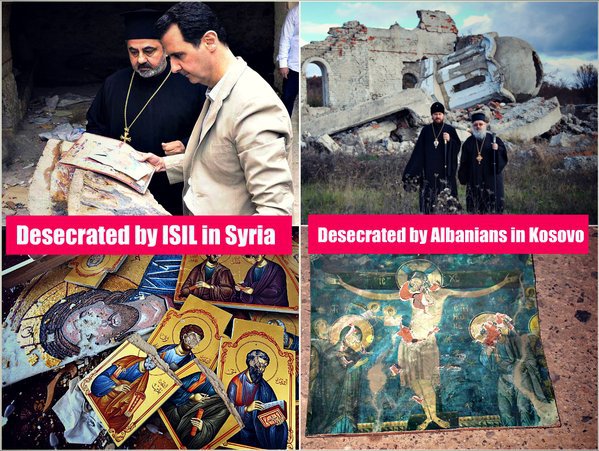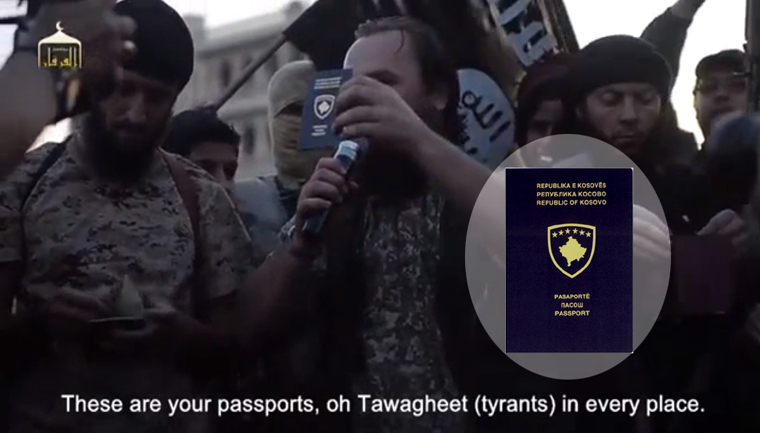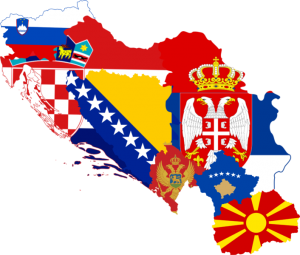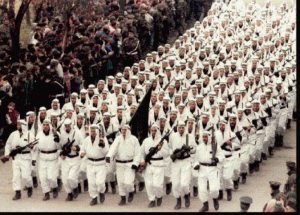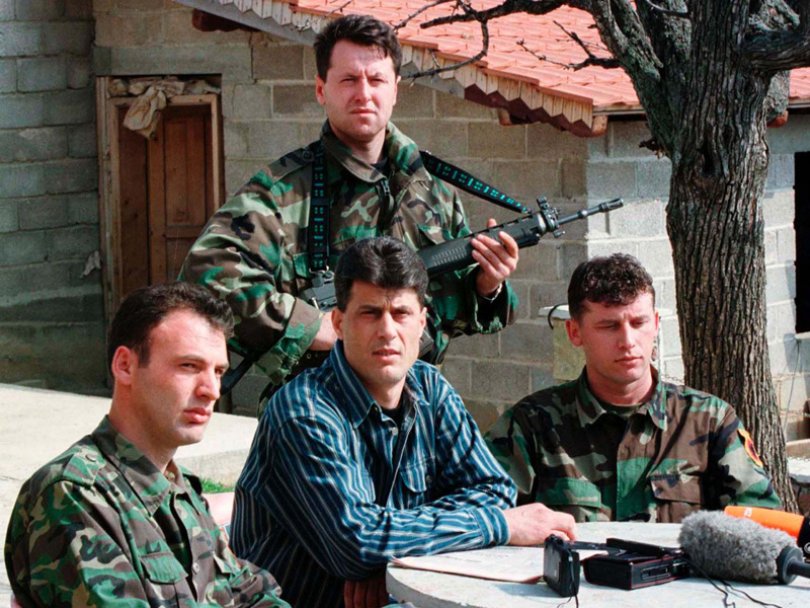
Views: 454
Once again, U.S. air and naval forces are preparing strikes on Serbia’s army and police for refusing to stand down in Kosovo. And, once again, Americans are deeply ambivalent about intervention.
“Either we get in there with a NATO force, or we get the hell out,” said an exasperated Sen. John Warner after Yugoslav strong man Slobodan Milosevic showed two NATO generals the door.
Warner advocates intervention. But Americans sense that, despite our disgust at the latest massacre and Milosevic’s thuggery, no vital U.S. interest exists there. The Serbs do not threaten NATO; they have not attacked Americans; they are fighting to hold onto a province that is the birthplace of Serbian nationhood. Whose flag flies over Kosovo’s capital has never been critical to us.
Defense Secretary Bill Cohen asserts that NATO’s “credibility remains on the line.” But who put it there? Before the 1990s, most Americans had never heard of Kosovo. And where does President Clinton get the authority to launch air strikes — acts of war — against a sovereign nation whose troops are putting down a rebellion on their own soil?
If we attack Serbs inside their own country, do Serbs have a right to attack us in ours? Why has Congress not demanded to know where we are going here, before we are ensnared in a war?
As the Kosovo Liberation Army has been accused of terrorism and seeks independence from Belgrade, which the United States opposes, why make our Air Force the air arm of the KLA? The KLA clearly wishes to drag NATO in as its shield against the Serbian army. But why should we accommodate the KLA? What is in it for us?
America’s fear is of a Balkan war, and one scenario runs thus: Kosovo, 90 percent Albanian, breaks free of Serbia to unite with Albania. The Albanians in Macedonia then attempt to break free to join them. Macedonia disintegrates; Greece, Serbia and Bulgaria all tear off a chunk. Having lost Kosovo, Serbia seeks to reunite with its kinsmen in Bosnia, smashing the Dayton accords. With Muslims in Bosnia under siege and Greece grabbing territory, Turkey enters the war.
Such a Balkan conflict would be horrific, but Balkan wars broke out in 1912, and again in 1913, without any great power intervening. Only in 1914, when Russia and Austria each saw its “credibility on the line” and clashed over Serbia, did World War I erupt, one of the worst disasters of Western civilization. History’s lesson: If you wish peace, stay out of the Balkans.
Before we use air power, that night stick of the New World Order, we should ask: What is it we hope to accomplish? To punish Milosevic? To convince him to send his army back to the barracks?
But if he complies and U.S. intervention brings independence to Kosovo, which then attempts to unite all the Albanians in the Balkans, leading to Macedonia’s collapse, do we intervene with U.S. troops to guarantee everyone’s territorial integrity?
Air strikes in Kosovo might be like those air strikes in Vietnam in 1965, the first bold step into the Big Muddy.
What is happening in the Balkans today is the continuation of the deconstruction of the Ottoman Empire, the “Sick Man of Europe” of the 19th century, and of the Hapsburg Empire, which collapsed in 1918. The centrifugal force in this struggle is virulent nationalism.
Slovenes wish to be ruled by Slovenes, Croats by Croats, Serbs by Serbs, Muslims by Muslims, Albanians by Albanians. All have shown a willingness to fight, to die and to see their own suffer and die in considerable numbers rather than submit to what they hold to be alien rule, either religious or ethnic. The past decade of atrocities and reprisals has hardened hatreds all around.
But why is this America’s conflict? If, as Bismarck observed, the entire Balkans were not worth the bones of a single Pomeranian grenadier, why do they justify an American military intervention?
If NATO will commit 100,000 troops to Bosnia, Kosovo and Macedonia indefinitely, it can probably maintain the status quo. But NATO Europe doesn’t have the troops, and Americans don’t believe the Balkans are worth that heavy a commitment.
So we arrive at Warner’s alternative: Get out, let the Balkan peoples settle their own quarrels, but be there to aid the innocent victims rather than add to their roster with air strikes and murderous sanctions that inflict suffering and death on people who never did us harm.
Of the German squadron pressing him at Manila Bay, Adm. George Dewey said, “They are too pushing and ambitious; they’ll overreach themselves someday.” They did, and so will we, with our constant compulsion to intervene in every foreign quarrel.
Originally published on 1999-01-22
Author: Patrick J. Buchanan
Source: Buchanan.org
Origins of images: Facebook, Twitter, Wikimedia, Wikipedia, Flickr, Google, Imageinjection & Pinterest.
Read our Disclaimer/Legal Statement!
Donate to Support Us
We would like to ask you to consider a small donation to help our team keep working. We accept no advertising and rely only on you, our readers, to keep us digging the truth on history, global politics and international relations.
FOLLOW US ON OUR SOCIAL PLATFORMS

